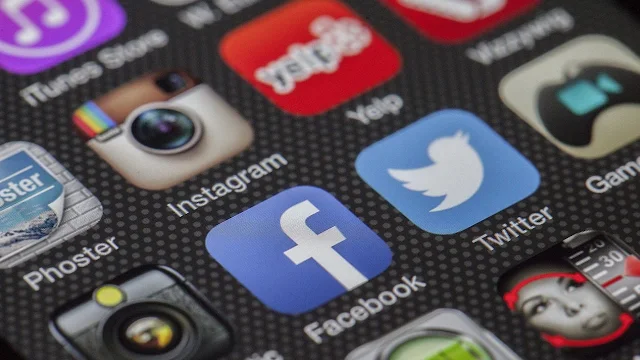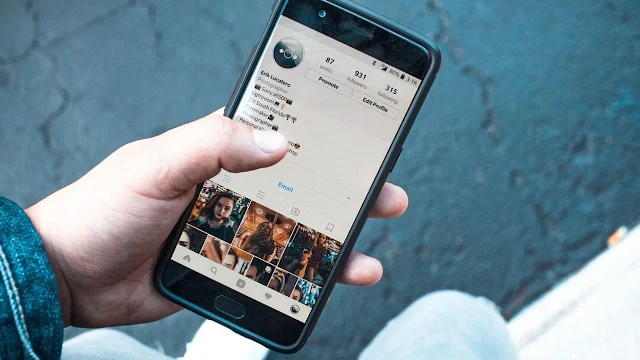What are top 5 Social Media?
As of my last update, the top 5 social media platforms are:
1. Facebook: With over 2.8 billion monthly active users, Facebook remains one of the largest social media platforms globally.
2. YouTube: A video-sharing platform, YouTube has over 2 billion logged-in monthly users, making it a significant player in the social media landscape.
3. WhatsApp: A messaging app owned by Facebook, WhatsApp has over 2 billion users worldwide.
4. Instagram: Focused on photo and video sharing, Instagram has over 1 billion monthly active users and is particularly popular among younger demographics.
5. TikTok: A platform for short-form mobile videos, TikTok has rapidly gained popularity, reaching over 1 billion monthly active users globally.
These numbers may have changed slightly since my last update, but these platforms continue to be among the most influential in the social media sphere.
Which Social Media is King?
Determining which social media platform is the "king" depends on various factors such as user engagement, audience demographics, revenue, and cultural influence. Historically, Facebook has often been considered the "king" of social media due to its large user base, global reach, and diverse features including Facebook itself, Instagram, WhatsApp, and Messenger, all owned by Meta Platforms, Inc. (formerly Facebook, Inc.).
However, preferences and trends can shift over time. Platforms like YouTube, TikTok, and Instagram have gained significant traction, especially among younger demographics. Each platform has its unique strengths and serves different purposes, so it's challenging to crown a single platform as the ultimate king of social media.
Ultimately, the "king" of social media might be the platform that best adapts to evolving user behaviors, technological advancements, and cultural trends.
Which Social Media is Famous?
As of recent times, several social media platforms stand out as famous due to their widespread use and cultural impact:
1. Facebook: With its massive user base and global reach, Facebook remains one of the most famous social media platforms.
2. Instagram: Known for its emphasis on visual content, Instagram is hugely popular, especially among younger demographics and influencers.
3. YouTube: As the largest video-sharing platform, YouTube has become synonymous with online video content and has a vast audience worldwide.
4. Twitter: Twitter is famous for its real-time updates, news dissemination, and public conversations, making it a prominent platform for sharing thoughts and opinions.
5. TikTok: With its short-form video format and viral challenges, TikTok has quickly risen to fame, particularly among younger users.
These platforms have become integral parts of modern digital culture and communication, contributing to their widespread fame and popularity.
Who is the best Followers in Social Media?
Determining the "best" followers in social media depends on various factors, including engagement, loyalty, and influence. However, some individuals and accounts have amassed significant followings across multiple platforms, indicating their influence and popularity:
1. Cristiano Ronaldo: The famous footballer has one of the largest followings on social media, with millions of followers on platforms like Instagram, Twitter, and Facebook.
2. Dwayne "The Rock" Johnson: The actor and former professional wrestler has a massive following on social media, known for his motivational content and engagement with fans.
3. Kylie Jenner: As one of the most followed celebrities on Instagram, Kylie Jenner has a massive social media presence, particularly in the realm of beauty and fashion.
4. Barack Obama: The former President of the United States has a significant following on various social media platforms, where he shares updates, thoughts, and initiatives.
5. Ellen DeGeneres: The talk show host has a large and engaged following on social media, known for her humor, philanthropy, and positive messaging.
These individuals have built strong relationships with their followers, leveraging their platforms for various purposes such as entertainment, advocacy, and brand promotion.
Who is Number 1 on TikTok?
As of my last update, Charli D'Amelio was one of the most followed individuals on TikTok, often regarded as one of the top creators on the platform. Charli D'Amelio gained fame for her dance videos and engaging content, amassing a large following on TikTok.
Please note that TikTok follower counts can fluctuate, and there may be changes in the rankings over time. However, Charli D'Amelio was notably one of the most prominent figures on TikTok for a significant period.
Who is the No 1 Followers in World?
As of my last update, Cristiano Ronaldo was one of the individuals with the highest number of followers across various social media platforms, including Instagram, Facebook, and Twitter. With millions of followers across these platforms, Cristiano Ronaldo is one of the most followed personalities globally.
Please note that follower counts can change over time, and other individuals or accounts may also have significant followings. However, Cristiano Ronaldo has consistently been among the most followed individuals on social media platforms.
Which Platform is Best for Marketing?
The best platform for marketing depends on various factors such as your target audience, type of product or service, marketing goals, and budget. Different platforms offer unique features and audience demographics that may align better with your marketing objectives. So here are some considerations for popular platforms:
1. Facebook: Facebook offers robust targeting options, diverse ad formats, and a large user base, making it suitable for a wide range of businesses.
2. Instagram: Instagram is highly visual, making it ideal for businesses focused on aesthetics, fashion, travel, and lifestyle. It also offers effective influencer marketing opportunities.
3. LinkedIn: LinkedIn is primarily used for professional networking and B2B marketing. It's suitable for businesses targeting professionals, offering advertising options and content marketing opportunities.
4. Twitter: Twitter is known for real-time updates and conversations, making it suitable for businesses looking to engage in timely discussions and customer service interactions.
5. YouTube: YouTube is excellent for video content marketing and reaching a broad audience. It's especially effective for tutorial videos, product demonstrations, and brand storytelling.
6. TikTok: TikTok is gaining popularity for its short-form video content, making it suitable for brands targeting younger demographics and looking to engage in creative and entertaining content marketing.
Ultimately, the best platform for marketing depends on your specific business objectives, target audience demographics, and the type of content you plan to create and share. It's essential to understand your audience and choose platforms where they are most active and engaged. Additionally, testing and analyzing different platforms can help determine which ones yield the best results for your marketing efforts.
Who Owns Social Media?
Social media platforms are owned by various companies and organizations. Here are some examples:
1. Meta Platforms, Inc. (formerly Facebook, Inc.): Owns Facebook, Instagram, WhatsApp, and Oculus VR.
2. Google: Owns YouTube, as well as Google+ (which has been discontinued).
3. Twitter, Inc: Owns Twitter, a microblogging and social networking platform.
4. Snap Inc: Owns Snapchat, a multimedia messaging app.
5. ByteDance: Owns TikTok, a short-form video-sharing platform.
6. LinkedIn Corporation: Owns LinkedIn, a professional networking platform.
7. Pinterest, Inc: Owns Pinterest, a visual discovery and bookmarking platform.
These companies manage and operate the platforms, setting policies, implementing features, and overseeing user interactions. They generate revenue through advertising, subscriptions, partnerships, and other monetization strategies.
How Many Social Media in the World?
It's challenging to provide an exact number of social media platforms in the world as new platforms emerge, and existing ones evolve or disappear over time. However, there are thousands of social media platforms catering to various niches, demographics, and interests.
Some of these platforms are widely known and used globally, while others are more specialized and may target specific communities or interests. Additionally, social media platforms can vary in terms of format, features, and functionality, ranging from text-based forums to video-sharing apps.
While major platforms like Facebook, Instagram, Twitter, LinkedIn, YouTube, and Snapchat are among the most prominent, numerous other platforms serve niche audiences or focus on specific types of content or interactions.
The landscape of social media is dynamic and constantly evolving, with new platforms emerging to address changing user needs, technological advancements, and cultural trends.
How Many People Use Social Media?
As of the most recent data available, billions of people around the world use social media. The exact number of users can vary depending on the platform and the source of the data. Here are some approximate figures:
1. Facebook: Over 2.8 billion monthly active users.
2. YouTube: Over 2 billion logged-in monthly users.
3. WhatsApp: Over 2 billion users worldwide.
4. Instagram: Over 1 billion monthly active users.
5. TikTok: Over 1 billion monthly active users.
These numbers highlight the significant global reach and influence of social media platforms. Additionally, there are millions of users on various other social media platforms, contributing to the overall social media user base worldwide.
Who is the Father of Social Media?
The concept of social media has evolved over time, and attributing it to a single individual as the "father" of social media is challenging due to its collaborative and iterative nature. However, there are several pioneers who have significantly contributed to the development and popularization of social media platforms and technologies:
1. Douglas Engelbart: Known for inventing the computer mouse and demonstrating early hypertext and collaborative tools in the 1960s, Engelbart's work laid the foundation for many aspects of modern computing, including concepts relevant to social media.
2. Tim Berners-Lee: Credited with inventing the World Wide Web in 1989, Berners-Lee's creation provided the infrastructure for the development of social media platforms and facilitated online communication and collaboration.
3. Andrew Weinreich: Often referred to as the "father of social networking," Weinreich founded the social networking site SixDegrees.com in 1996, which was one of the earliest examples of a platform connecting users through profiles and friends lists.
4. Mark Zuckerberg: Co-founder of Facebook, Zuckerberg played a pivotal role in popularizing social networking on a global scale with the launch of Facebook in 2004. Facebook's success and influence have had a profound impact on the development of social media as we know it today.
While these individuals have made significant contributions to the development and growth of social media, it's important to acknowledge that social media is the result of collective efforts and innovations by many individuals, organizations, and communities over time.
What are the 10 Disadvantages of Social Media?
Social media offers numerous benefits, but it also comes with several disadvantages. Here are ten common disadvantages of social media:
1. Addiction: Excessive use of social media can lead to addiction, negatively impacting productivity, relationships, and mental health.
2. Privacy concerns: Social media platforms often collect and share user data, raising concerns about privacy and data security.
3. Cyberbullying: Social media provides a platform for cyberbullying, harassment, and online abuse, which can have serious consequences for victims' mental health and well-being.
4. Comparison and self-esteem issues: Constant exposure to curated and idealized images on social media can lead to feelings of inadequacy, low self-esteem, and depression as users compare themselves to others.
5. Fake news and misinformation: Social media enables the rapid spread of fake news, misinformation, and propaganda, undermining trust in traditional media and institutions.
6. Distraction and procrastination: Social media can be a significant source of distraction, leading to decreased productivity and concentration, especially among students and workers.
7. Negative impact on mental health: Excessive use of social media has been linked to increased rates of anxiety, depression, loneliness, and stress, particularly among young people.
8. Sleep disturbances: The use of social media before bedtime can disrupt sleep patterns and quality, leading to insomnia and other sleep disorders.
9. Online scams and phishing attacks: Social media platforms are often targeted by cybercriminals to spread malware, phishing scams, and fraudulent schemes, putting users' personal and financial information at risk.
10. Impact on real-life relationships: Excessive use of social media can lead to neglect of real-life relationships and face-to-face interactions, resulting in feelings of loneliness and isolation.
It's important for users to be aware of these disadvantages and to use social media mindfully, setting boundaries and practicing digital hygiene to mitigate potential risks and negative impacts.




